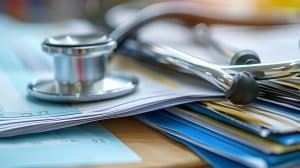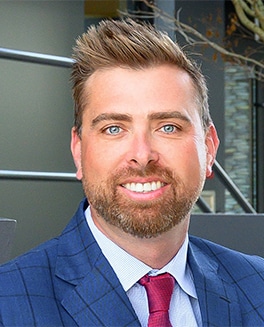What Medical Records or Documents Do I Need After a Car Accident?
 After a car accident, one of the first tasks your attorney will recommend is gathering your medical records or documents. These documents can help prove that you were involved in a crash, suffered injuries, and received medical treatment.
After a car accident, one of the first tasks your attorney will recommend is gathering your medical records or documents. These documents can help prove that you were involved in a crash, suffered injuries, and received medical treatment.
However, there are a variety of medical-related records and documents that you may need after a car accident. Here are eight common types of medical records and documents that you should gather and present to your Vancouver car accident lawyer as soon as possible:
1. Physician notes
Physician notes are essential. When you first arrive at the hospital, doctor’s office, or even an urgent care facility, the physician will begin taking notes about your condition, what they observed, and the treatment plan. These notes explain the severity of your injuries, your prognosis, and your treatment plan.
2. Diagnostic and imaging test results
Depending on your injuries, the doctor may order several diagnostic and imaging tests to check for hidden or underlying injuries. For instance, conditions such as concussions, brain bleeds, slipped discs, and pulled muscles are all possible following car accidents, and all require some form of imaging test or other exams to diagnose. Gather results from your X-rays, CT scans, MRI tests, blood tests, urine tests, and more to support your claim.
3. Prescriptions and medication records
Doctors may prescribe medications like painkillers, antibiotics, and anti-inflammatories to aid your recovery. Collect your prescriptions and medication records to show you were prescribed certain medications during your healing process. You may also want to collect records that show that you were not on medications that interfered with your driving capabilities before the accident.
4. Treatment records
Your treatment records are also important as they thoroughly explain what type of medical care you received or underwent. For example, if they show that you had multiple surgeries due to a traumatic brain injury, a cast placed on your broken or fractured arm, or needed a feeding tube because you could no longer eat or feed yourself after suffering a spinal cord injury, those records will be critical for proving the extent of your injuries and damages.
5. Medical and immunization history
Your medical and immunization history can show pre-existing conditions and injuries you had before the car accident, medical conditions that run in your family, and any substance abuse issues. This information can be essential if the opposing team tries to argue that your injuries were pre-existing or that you were intoxicated during the crash. The other side will likely request these records, so it is important for your lawyer to review them and identify anything that might impact your claim. Your attorney can then plan for how to address anything that might come up in those records.
6. Physical therapy records
After your car accident, a physician may recommend that you attend ongoing physical therapy appointments to learn how to move, function, and adapt to your injuries. Physical therapy helps accident victims exercise, heal, and gain mobility. Therefore, if you require any physical therapy or rehabilitation services, it is a good idea to gather these records and reports to show that you are taking your recovery seriously and whether or not you have made any progress. If you neglect to take the advice of your doctors, the opposing attorneys can use that information to claim that you were not as severely injured as you claim. Also, the other side might say that you would have recovered sooner if you had taken your doctor’s advice, again using that argument to reduce your damages. Even as you gather information and start your claim, remember to keep up with your appointments.
7. Doctor, hospital, surgery, and other medical bills
Other important documents that you should gather are your medical bills. You most likely have received several expensive medical bills from your wreck. Therefore, it is crucial to make sure that you collect every single bill related to your accident, as these bills can show what type of impact the accident has had on your finances. These bills will help you tally your past medical expenses, which is critical information for requesting damages.
8. Referrals, post-op care instructions, and follow-up records
After your initial doctor’s office or hospital visit, the physician will likely refer you to other specialists for more individualized attention and care. For example, if your car caught fire during the collision and resulted in second-and third-degree burns, you may be referred to a burn specialist to ensure that you receive adequate treatment and focus on your burns.
If you underwent any procedures or surgeries, you should also gather your post-op care instructions, which explain what you are supposed to do in the coming weeks, days, or months. In addition, most doctors and specialists will want you to continue to go to follow-up appointments. Therefore, you should provide documentation showing what type of follow-up care appointments you had and whether or not you attended.
Medical records and documents can play a critical part in your car accident case. Therefore, if you hire a Vancouver, WA car accident attorney from Philbrook Law, we will help you obtain all necessary medical records and documents that support your claim, show how severe your injuries are, prove the overwhelming medical costs that you have accumulated, and provide insight into the future treatments you may need. Please call our office or complete our contact form to schedule your free consultation in Vancouver, WA, today.

Founding Attorney Matthew Philbrook attended Clark College, Washington State University, and Gonzaga University School of Law. He is a member of the Washington State and Oregon State Bar Associations and started Philbrook Law in 2005. He specializes in Personal Injury, DUI and Criminal Defense cases. Learn more about Mr. Philbrook.

